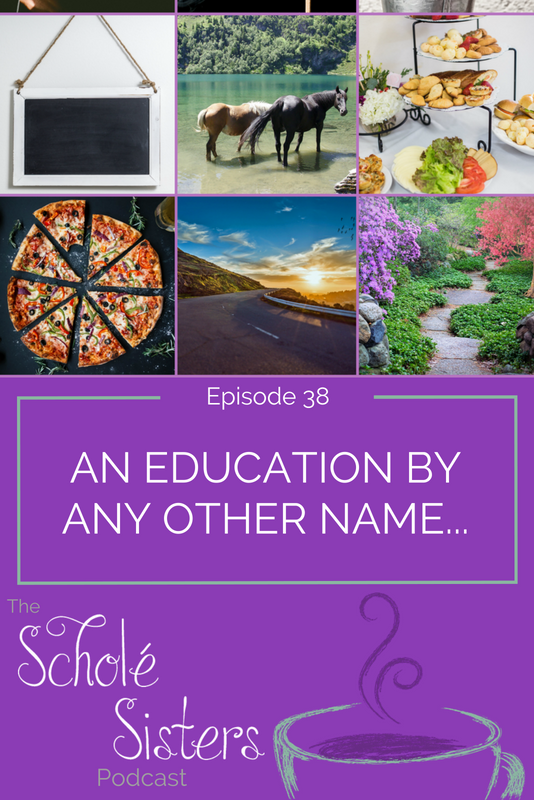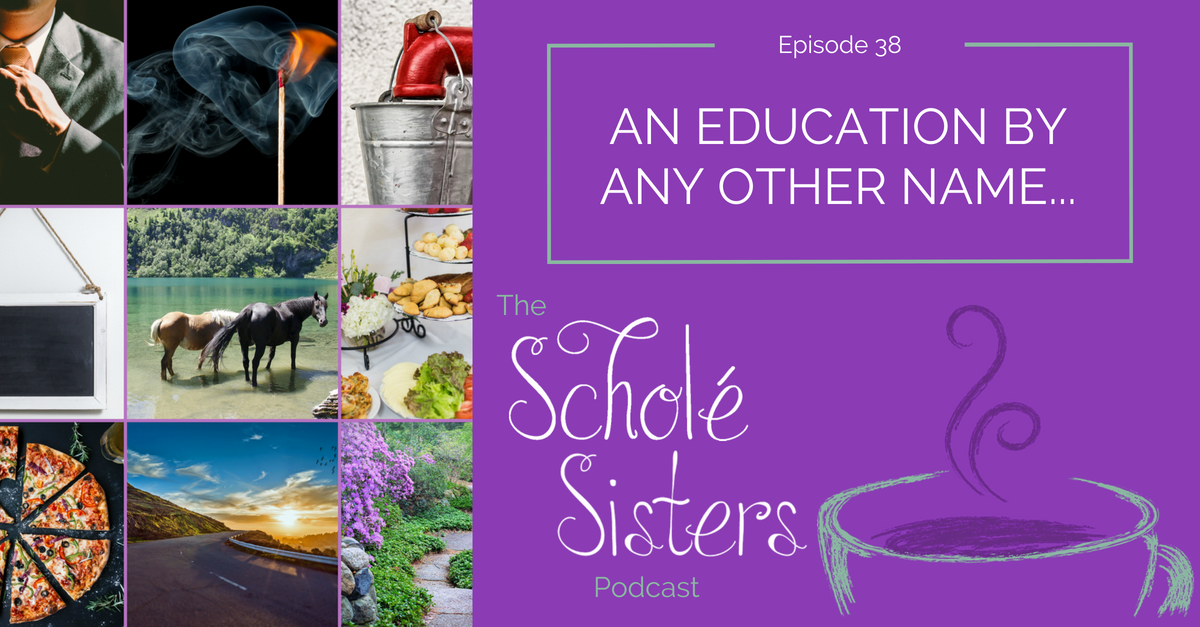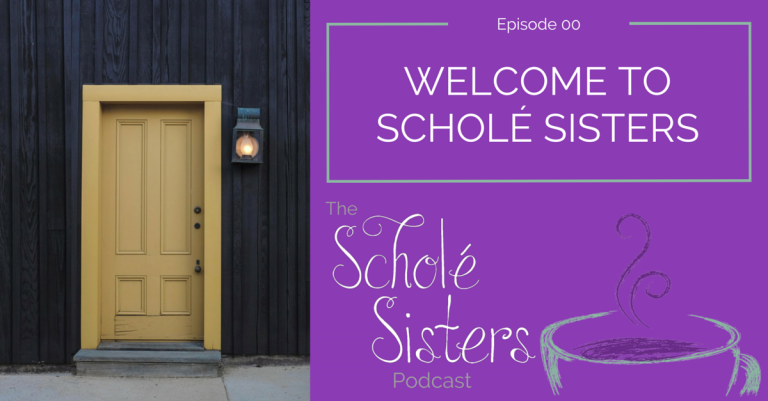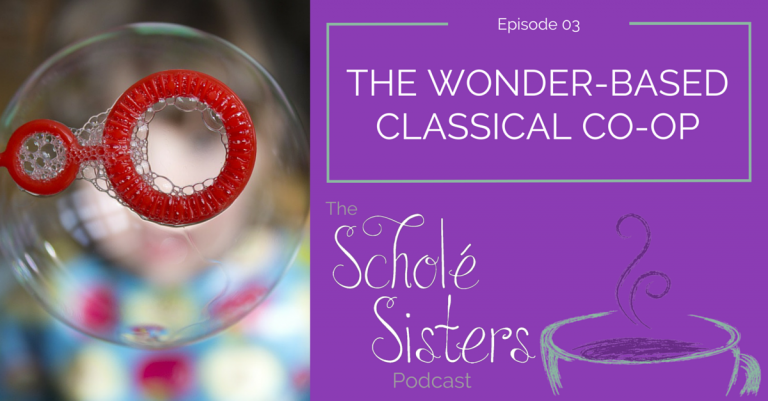SS #38: An Education by Any Other Name…
In today’s episode, Mystie, Pam, and Brandy discuss the power of educational metaphors – are we using the right images to picture our homeschools? Metaphors aren’t absolute — it’s what we mean by them and how we apply them that matters. Join the Scholé Sisters as they hash out metaphors and discuss what makes a good one worth using.

Thank you to our sponsor:

Listen to the podcast:
Podcast: Play in new window | Download
Show Notes:
- Scholé Everyday
- Pam:
- Michelle’s Notebooks on Instagram
-
- Michelle’s trace transfer video
- Michelle’s trace transfer video
-
- Michelle’s Notebooks on Instagram
- Brandy:
A red scholé cart!!
- The Mother Culture Summer Reading List (includes habit track for mother culture reading challenge that Pam mentioned)
- The Mothers’ Education Course Summer Reading List
- Why Brandy is not pre-reading next year: Welcome to the Classical Grind
- Jennifer Mackintosh
- Mystie:
- Pam:
- Topical Discussion: Educational Metaphors
- Education is your job.
- Education is not the filling of a bucket but the lighting of a fire. (Loose paraphrase of Yeats there…)
- Education is writing upon a blank slate.
- Education is bringing a horse to water.
- Stratford Caldecott
- “Education is a life” vs. “Life is education.”
- Education is a Life episode
Education of a Wandering Man by Louis L’Amour Education of a Wandering Man by Louis L’Amour
- The Charlotte Mason quote Brandy couldn’t remember:
- “We supplement this direct ‘nature walk’ by occasional object-lessons, as, on the hairs of plants, on diversity of wings, on the sorts of matters taken up in Professor Miall’s capital books; but our main dependence is on books as an adjunct to out-of-door work––Mrs. Fisher’s, Mrs. Brightwen’s, Professor Lloyd Morgan’s, Professor Geikie’s, Professors Geddes’ and Thomson’s (the two last for children over fourteen), etc., etc. In the books of these and some other authors the children are put in the position of the original observer of biological and other phenomena. They learn what to observe, and make discoveries for themselves, original so far as they are concerned. They are put in the right attitude of mind for scientific observations and deductions, and their keen interest is awakened. We are extremely careful not to burden the verbal memory with scientific nomenclature. Children learn of pollen, antennae, and what not, incidentally, when the thing is present and they require a name for it. The children who are curious about it, and they only, should have the opportunity of seeing with the microscope any minute wonder of structure that has come up in their reading or their walks; but a good lens is a capital and almost an indispensable companion in field work. I think there is danger in giving too prominent a place to education by Things, enormous as is its value; a certain want of atmosphere is apt to result, and a deplorable absence of a standard of comparison and of the principle of veneration. ‘We are the people!’ seems to be the note of an education which is not largely sustained on books as well as on things.” (Vol 3 p. 237-238)
The Great Tradition by Richard Gamble
- Lectio Divina episode with Pam and Ashley Woleben
- Education is a feat.
- Education is a MEAL.
- Education is a journey, not a destination.
- Education is a path to be traveled.
- Education is a hobby.
- What happens inside a classroom = education.
The Graves of Academe by Richard Mitchell
- Action steps:
- Identify the metaphors you have in your head and whether those are the pictures you want to have defining what you’re doing.
- Think of how you are applying those metaphors to your homeschool.
- Bring the language of your metaphors to the surface and check for negative applications (even if the metaphors are in themselves good ones).
Please leave us a review in Apple Podcasts!
If you upgraded to iOS 11, you’ll find leaving a review easier than ever. Just go to Scholé Sisters in your subscriptions and scroll down.













